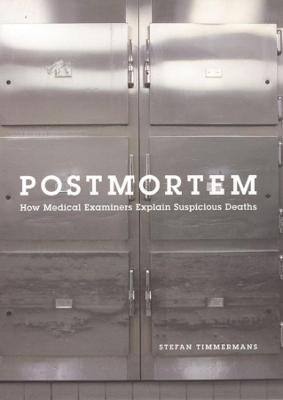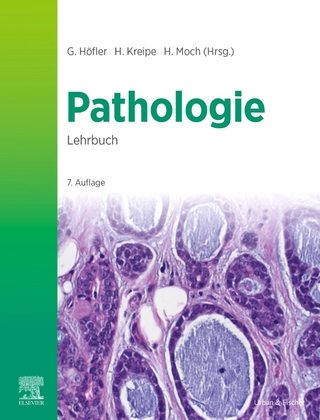
Postmortem
How Medical Examiners Explain Suspicious Deaths
Seiten
2006
University of Chicago Press (Verlag)
978-0-226-80398-2 (ISBN)
University of Chicago Press (Verlag)
978-0-226-80398-2 (ISBN)
- Titel z.Zt. nicht lieferbar
- Versandkostenfrei
- Auch auf Rechnung
- Artikel merken
Why did someone die? Should someone be held accountable? Can medical examiners unmask the perfect crime? Examining the world of medical examiners, this title presents the intricate web of pathological, social, legal, and moral issues in which they operate. It focuses on how medical examiners speak to the living on behalf of the dead.
As elected coroners came to be replaced by medical examiners with scientific training, the American public became fascinated with their work. From the grisly investigations showcased on highly rated television shows like C.S.I. to the bestselling mysteries that revolve around forensic science, medical examiners have never been so visible - or compelling. They, and they alone, solve the riddle of suspicious death and the existential questions that come with it. Why did someone die? Could it have been prevented? Should someone be held accountable? What are the implications of ruling a death a suicide, a homicide, or an accident? Can medical examiners unmask the perfect crime? "Postmortem" goes deep inside the world of medical examiners to uncover the intricate web of pathological, social, legal, and moral issues in which they operate. Stefan Timmermans spent years in a medical examiner's office, following cases, interviewing examiners, and watching autopsies. While he relates fascinating cases here, he is also more broadly interested in the cultural authority and responsibilities that come with being a medical examiner.
Although these professionals attempt to remain objective, medical examiners are nonetheless responsible for evaluating subtle human intentions. Consequently, they may end - or start - criminal investigations, issue public health alerts, and even cause financial gain or harm to survivors. How medical examiners speak to the living on behalf of the dead is Timmermans's subject, revealed here in the day-to-day lives of the examiners themselves.
As elected coroners came to be replaced by medical examiners with scientific training, the American public became fascinated with their work. From the grisly investigations showcased on highly rated television shows like C.S.I. to the bestselling mysteries that revolve around forensic science, medical examiners have never been so visible - or compelling. They, and they alone, solve the riddle of suspicious death and the existential questions that come with it. Why did someone die? Could it have been prevented? Should someone be held accountable? What are the implications of ruling a death a suicide, a homicide, or an accident? Can medical examiners unmask the perfect crime? "Postmortem" goes deep inside the world of medical examiners to uncover the intricate web of pathological, social, legal, and moral issues in which they operate. Stefan Timmermans spent years in a medical examiner's office, following cases, interviewing examiners, and watching autopsies. While he relates fascinating cases here, he is also more broadly interested in the cultural authority and responsibilities that come with being a medical examiner.
Although these professionals attempt to remain objective, medical examiners are nonetheless responsible for evaluating subtle human intentions. Consequently, they may end - or start - criminal investigations, issue public health alerts, and even cause financial gain or harm to survivors. How medical examiners speak to the living on behalf of the dead is Timmermans's subject, revealed here in the day-to-day lives of the examiners themselves.
Stefan Timmermans is professor of sociology at the University of California, Los Angeles. He is the author of two previous books, including Sudden Death and the Myth of CPR.
| Erscheint lt. Verlag | 30.6.2006 |
|---|---|
| Reihe/Serie | Fieldwork Encounters and Discoveries |
| Sprache | englisch |
| Maße | 16 x 23 mm |
| Gewicht | 652 g |
| Themenwelt | Medizin / Pharmazie ► Gesundheitswesen |
| Studium ► 2. Studienabschnitt (Klinik) ► Pathologie | |
| Studium ► 2. Studienabschnitt (Klinik) ► Rechtsmedizin | |
| Recht / Steuern ► Strafrecht ► Kriminologie | |
| ISBN-10 | 0-226-80398-8 / 0226803988 |
| ISBN-13 | 978-0-226-80398-2 / 9780226803982 |
| Zustand | Neuware |
| Haben Sie eine Frage zum Produkt? |
Mehr entdecken
aus dem Bereich
aus dem Bereich
Klinisch-pathologische Übersichtskarten
Buch | Hardcover (2023)
Springer (Verlag)
CHF 48,95


